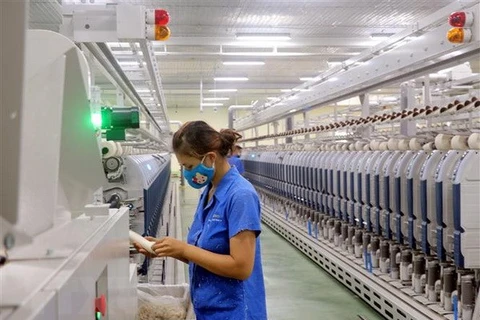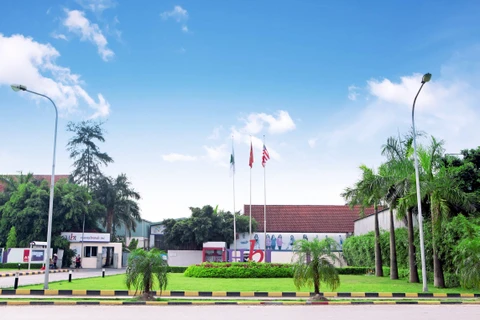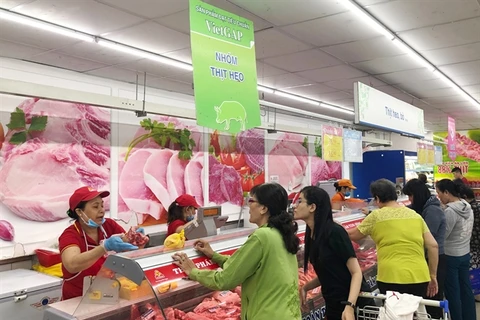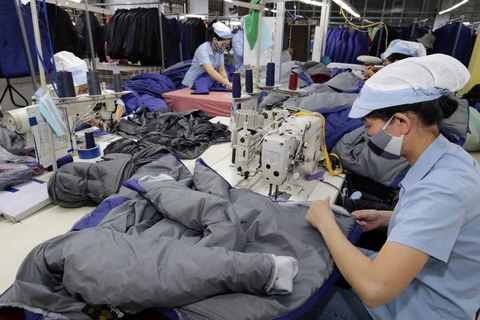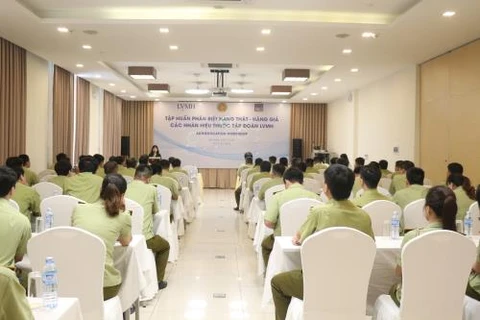Hanoi (VNA) – Concerns are growing over whether supermarket chain Big C’s temporary suspension of Vietnamese apparel purchases could spread to other products and retailers.
On July 2, Central Group, the owner of Big C, told local suppliers it would stop purchasing local apparel to prepare for the group’s garment sector restructuring in the Vietnamese market.
The move, which began from July 2019, will last until Central Group issues another announcement.
The group said all issues arising before July 2 will continue to be addressed under regulations of the commercial cooperation contract it signed with suppliers.
“This temporary suspension of ordering is owing to a change in strategy of development of our soft-line concept in line with direction from Central Group in Thailand,” it said.
Violating the Law on Competition
Big C’s sudden move brought strong reactions from apparel producers and the public.
Dr. Le Dang Doanh, an economic expert and former head of the Central Economic Institute, came out against the move.
“The group should discuss with suppliers before taking a move in order to persuade consumers about its decision. Big C’s action will psychologically impact Vietnamese consumers,” he said.
It is hard for Vietnamese consumers to accept Big C’s decision, which would likely spark a boycott of the supermarket, Doanh added.
According to Doanh, Vietnamese companies could bring the case to court or the arbitrators’ council over the sudden cancellation of contracts.
Vu Vinh Phu, former Chairman of the Hanoi Supermarkets Association, pointed out that Big C has enjoyed a lot of favourable treatment, such as good location, tax incentives and trade promotion. The supermarket itself declared 80-90 percent of its goods would be Vietnamese commodities. He questioned whether Big C has done as it said it would.
Phu assumed Big C’s move violates the Law on Competition as it has not reached an agreement with suppliers and informed of the move in advance but suddenly stopped the contract.
The Law on Competition says retailers cannot refuse to buy goods from suppliers without giving them an appropriate reason, he said.
He questioned whether Big C will take the same action against other commodities and if other foreign supermarket will follow its lead.
He recalled that four years ago Big C stopped cooperating with local producers to make Big C brand goods. Many Vietnamese businesses said the supermarket asked for discount rates of 25-30 percent, which pushed up the price of Vietnamese goods and made them unable to compete with foreign products.
Losing distribution channel “kills” Vietnamese goods
Experts suggested the Hanoi Trade Department and the Retailers’ Association take action against supermarkets demanding high discounts and stopping contracts with suppliers without appropriate reasons.
As the agency which approved Big C’s investment, the Ministry of Industry and Trade needs to take responsibility for the case, especially for checking the fulfillment of its commitments, they noted.
Phu commented that a discount level of 30 percent for bringing goods into a supermarket would “kill” Vietnamese commodities.
Suppliers for Big C and Metro together account for half of the sale points of the whole retail system, and each earns revenues 10 times the revenue of Vietnamese shops, he added.
“Losing distribution channels will lose all, and Vietnamese products will die,” he said.
Vietnamese distributors like Vinmart, Hapro and Saigon Co.op should work to dominate the domestic market, Phu stressed.
Vietnamese supermarkets have not been treated equally with foreign ones, he said, citing an example in Hai Phong when municipal authorities proposed allocating money to build a road leading to Japanese Aeon supermarket, and raising a question about whether a Vietnamese supermarket would get the same treatment.
Central Group bought Big C from France’s Casino Group in 2016 at a cost of 1.05 billion USD.
It also owns a large stake in electronics retail chain Nguyen Kim.-VNA


